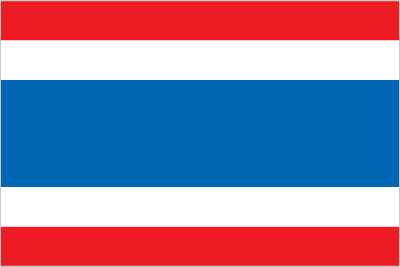The Ministry of Foreign Affairs (www.mfa.go.th) oversees immigration and visas issues. Check the website or the nearest Thai embassy or consulate for application procedures and costs.
Tourist Visas & Exemptions
The Thai government allows tourist-visa exemptions for 41 different nationalities, including those from Australia, New Zealand, the USA and most of Europe, to enter the country without a prearranged visa.
For those arriving in the kingdom by air, a 30-day visa is issued without a fee. For those arriving via a land border, the arrival visa is 15 days.
Without proof of an onward ticket and sufficient funds for one’s projected stay any visitor can be denied entry, but in practice this is a formality that is rarely checked.
If you plan to stay in Thailand longer than 30 days (or 15 days for land arrivals), you should apply for the 60-day Tourist Visa from a Thai consulate or embassy before your trip. Contact the nearest Thai embassy or consulate to obtain application procedures and determine fees for tourist visas.
Non-Immigrant Visas
The Non-Immigrant Visa is good for 90 days and is intended for foreigners entering the country for business, study, retirement and extended family visits. There are multiple-entry visas available in this visa class; you’re more likely to be granted multiple entries if you apply at a Thai consulate in Europe, the US or Australia than elsewhere. If you plan to apply for a Thai work permit, you’ll need to possess a Non-Immigrant Visa ï¬rst.
Visa Extensions & Renewals
If you decide you want to stay longer than the allotted time, you can extend your visa by applying at any immigration office in Thailand. The usual fee for a visa extension is 1900B. Those issued with a standard stay of 15 or 30 days can extend their stay for seven to 10 days (depending on the immigration office) if the extension is handled before the visa expires. The 60-day tourist visa can be extended by up to 30 days at the discretion of Thai immigration authorities.
Another visa-renewal option is to cross a land border. A new 15-day visa will be issued upon your return and some short-term visitors make a day trip out of the ‘visa run’. See individual destinations for land border information and border formalities.
If you overstay your visa, the usual penalty is a fine of 500B per day, with a 20,000B limit. Fines can be paid at the airport or in advance at an immigration ofï¬ce. If you’ve overstayed only one day, you don’t have to pay. Children under 14 travelling with a parent do not have to pay the penalty.
Foreign residents in Thailand should arrange visa extensions at the immigration office closest to their in-country address.
Thailand's immigration offices
The following are two immigration offices where visa extensions and other formalities can be addressed. Remember to dress in your Sunday best when doing official business in Thailand and do all visa business yourself (don’t hire a third party). For all types of visa extensions, bring along two passport-sized photos and one copy each of the photo and visa pages of your passport.
» Bangkok immigration office (0 2141 9889; Bldg B, Bangkok Government Center, Th Chaeng Wattana; 9am-noon & 1-4.30pm Mon-Fri)
» Chiang Mai immigration office (0 5320 1755-6; Th Mahidon; 8.30am-4.30pm Mon-Fri)
